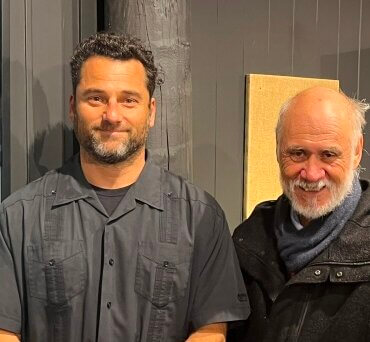
Professor Tom Roa and Dr Rodrigo Hill
Tarapipipi Te Waharoa was born in 1805 into a world where the principle of utu was first and foremost in how his people lived. I should note here that the most well-known consequence of utu is that where should someone do something bad to you, you did worse back – which too often escalated into tribal warfare.

Prof Tom Roa
The converse however was also true, and is less well-known – if someone did something good to/for you, you did better back.
With his baptism into the Christian fraternity Tarapipipi committed to the gospel’s teachings and the principles of loving God above all else, and of loving one’s neighbour as oneself. Upon that baptism he received the new name of Wiremu Tamihana, and his commitment to ‘Utua te kino ki te pai’ – repaying evil with goodness – in those very challenging times of war with Crown forces, of Raupatu and Muru Whenua, led him and his iwi, Ngāti Hauā, into principled behaviours that live to this day amongst Ngāti Hauā and many with whom they share various relationships.
The recent launch of the book Tamihana at Rukumoana Marae near Morrinsville was a celebration of a family, indeed of an iwi, who willingly and intentionally of their own volition joined with Tamihana in that essentially Christian ethic.
Central to that ethic is Christ’s model of servant leadership.
The mana of the Kingmaker, the Pou Whakawahi Kīngi, later termed Te Tumuaki with that ethic of their being servant leaders resounds in this book in their deeds, their conduct, and their iwi’s behaviours.
At the invitation of the now-deceased Tumuaki Anaru, the book’s author Jade Hohaia Te Uru Karaka traces a narrative of Wiremu Tamihana, his influence in the formation of the Kīngitanga – the Māori King Movement – and his contribution and commitment along with that of his descendants in upholding and progressing his legacy of servant leadership.
The assertion that some people climb up the ladder of success principally to benefit themselves is in juxtaposition to Tumuaki Anaru’s assertion that he, his predecessors and antecedents, climb down the ladder of success to be one with their people.








